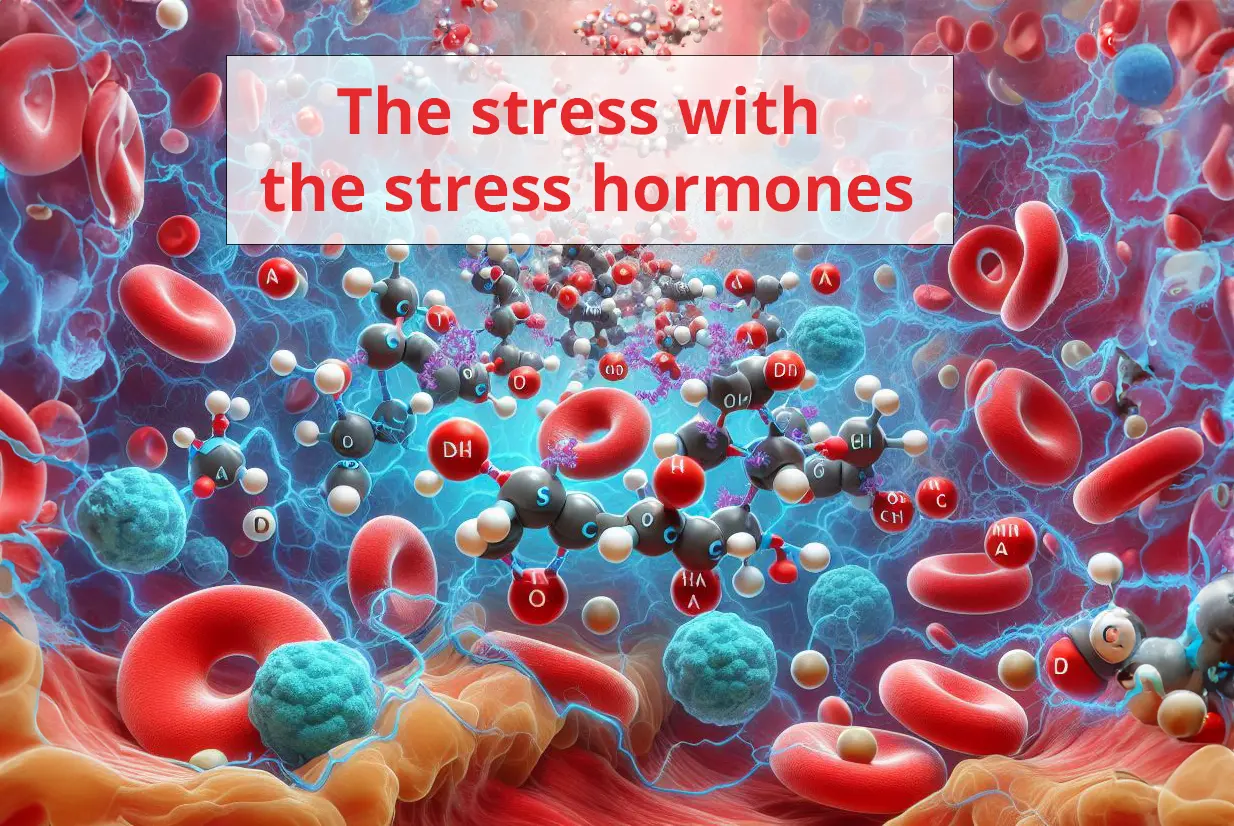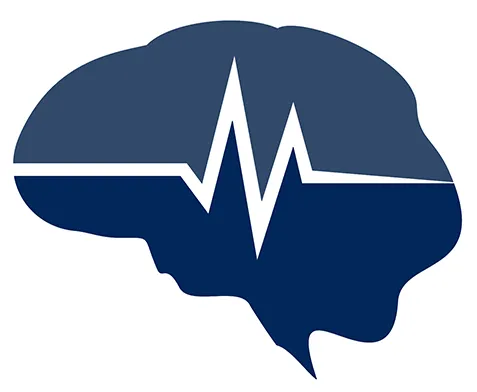

Do you ever feel like everything is just “too much”? More and more stress, problems, worries – thoughts that haunt you and never let you rest?
It doesn’t have to be a full-blown burn-out. But you don’t have to go on like this forever, until it does have health consequences, which may not be completely reversible. So why is that and what can be done about it?
- Why is that?
You probably know that your eye is connected to your brain by many nerve cells called neurons. Of course, there are constantly around 24 images per second to be transmitted – in colour and 3D. But did you know that each neuron only sends signals in one direction, and that research has found that there are far more nerve cells going from the brain to the eye than from the eye to the brain? What sense does that make? How did this become established in evolution?
The reason for this is that one of the main functions of the human brain is to be constantly on the lookout for potential threats. And what exactly a potential threat might be (i.e. what to look out for) is reported by our brain to our sensory organs based on our experiences stored in the brain. All this takes place below the threshold of consciousness, i.e. we are not consciously aware of it at first.
When a suspected threat (“trigger stimulus” = “stressor”) is recognised, the brain switches into “stress mode”, i.e. physical processes such as breathing, blood circulation, metabolism etc. are adjusted and prepared for imminent physical exertion. At the same time, the focus of our consciousness is strongly orientated towards the potential danger. This happens through the release of hormones and messenger substances that spread throughout the body.
For hundreds of thousands of years, this was helpful and conducive to survival for our ancestors, who had to survive against wild animals or hostile hordes primarily by fighting or fleeing. During this physical exertion, the “stress hormones” in the body were broken down again, leading out of stress mode.
Today, we generally face different types of threats than our ancestors. Although these are generally no longer life-threatening, our alarm system still reacts in the same way. Perhaps with slightly less intensity, but more frequently.
The problem is that the subsequent physical exertion of fighting or fleeing is usually absent now. When “fighting with words” or “escaping into distraction”, we hardly reduce stress hormones.
So if we produce new stress hormones too frequently and do not reduce them enough, at some point it becomes “too much” – which is how we feel and which is clearly harmful to our health in the medium term.
- What happens inside us when we are in “stress mode”?
When a perceived threat is detected, an unconsciously working part of the brain (the brain stem) first triggers the production of noradrenaline and adrenaline. Within fractions of a second, this leads to an increase in basic muscular tension, alertness and readiness to react. At high intensities we experience this as a “sudden fright”, at low intensities it may only elicit a groan.
Our conscious attention is now focused on the potential threat and we begin to think about it. If the all-clear is not given, another part of the brain that works unconsciously (the hypothalamus in the diencephalon) switches completely into “stress mode” by causing the body to ramp up the production of stress hormones (primarily cortisol), which spread throughout the body, including the brain, via the bloodstream.
In order to maximise physical performance for upcoming fight or flight, blood vessels in the digestive tract are contracted so that more blood is diverted to the arms and legs. In addition, the concentration of sugar and fats in the blood is increased to provide more energy, while at the same time energy-intensive bodily functions such as cell renewal and immune defence are reduced.
Firstly, the stress hormones in the brain cause our conscious attention to be focused on the potential threat, i.e. we can’t help but think about it. The higher the concentration of stress hormones, the harder it is to “switch off” and think about something else.
Recurring thoughts of problems and worries in turn trigger further production of stress hormones, which can create a vicious circle.
Secondly, the stress hormones affect the emotional centres in our brain in a way that creates a feeling of restlessness that can best be described as “I’ve got to do something!”. So a certain amount of stress hormones is quite activating.
Thirdly, the blood flow to the brain is adjusted in “stress mode”. Areas of the forebrain that are responsible for conscious thinking, receive less blood, while areas of the brain further back, which are more responsible for unconscious reflexes, receive more blood. This is why we find it more difficult to think clearly and logically in “stress mode”. Constantly elevated levels of stress hormones therefore no longer have an activating effect, but rather an overwhelming or even paralysing one.
- What are the effects of staying in “stress mode” for too long?
“Stressful moments” and occasional “stressful days” are normal and harmless. We can usually still cope quite well with “stressful phases” lasting 4-6 weeks. However, if you can hardly get out of “stress mode” for months, you are clearly damaging your own physical health.
- The constantly increased tension in the muscles favours muscular tension in the neck and back, which can lead to accelerated wear and tear on the spine.
- The constant suppression of cell renewal can lead to various malfunctions at the cellular level, which can cause long-term consequential damage somewhere in the body, for which a clear cause can never be found.
- The constant suppression of the immune system allows pathogens such as viruses and bacteria to spread more widely in the body than normal, so that they can cause more damage and are more difficult to bring back under control. Unfortunately, we don’t notice this for a long time because it is not the pathogens themselves, but only our own immune reactions that we can perceive as typical symptoms of illness (mucus, fever, pain, …) – and this is exactly what is missing in “stress mode”.
- The increased concentrations of sugar and fat in the blood lead to increased deposits on the walls of the blood vessel, which is often first noticed by an increase in blood pressure. This makes it more likely that at some point in time a tiny clot in the blood will block a blood vessel. This usually happens in blood vessels that are already very narrow, such as in the middle ear (in which case you “only” have tinnitus), in the brain (-> stroke) or in the coronary vessels (-> heart attack).
Of course, stress is not the only risk factor for such diseases. But these mechanisms are too logical to seriously deny the influence of prolonged excessive stress hormone levels. So, if you find yourself in a prolonged period of stress again and your health is important to you (not just important, but really important!), then be smart enough to pull the ripcord in good time, and do something about the “too much” stress hormones.
- What can be done about the “too much” stress hormones?
3 solution approaches that can be combined if needed:
- Approach #1: Reduce stress hormones more frequently
The most effective way to do this is with sport, especially endurance sport (jogging, home trainer, swimming, …)- rather long and at medium intensity
(Ambition to set new personal records would be counterproductive here, as this would tend to stimulate the production of new stress hormones.)
and of course only as far as the actual health situation allows!
“But I don’t have enough time anyway”, some people may think.
Nevertheless, it’s worth it – not only for health reasons and because you feel better afterwards. But also because you clear your head a little, usually sleep better and therefore become more productive again (in the middle of stress mode you use up a lot of energy, but usually don’t make good progress).
- Approach #2: Recognise your individual stressors and then avoid or change them
If, for example, encounters with a certain person always stress you out, you can avoid this person as much as possible or politely make it clear to them what you would like to change about your encounters.
If you are stressed by worries about (possible) upcoming events, you can focus your energy on preparing yourself well, seeking help and finding solutions.
If your stress is mainly due to an overwhelming number of tasks, responsibilities and obligations, you can try to offload some of them or increase your productivity.
These were just three examples. People feel stressed by very different things, so it is important to gain clarity about what triggers the production of stress hormones in you.
- Approach #3: Let the stressors stress you out less
Not all stressors can be avoided or changed. But it is always possible to change how you react to them – how upset and uncomfortable you feel about them.
We have inherited the stress response itself from our ancestors – we cannot change it. But we have only learned the link between individual stressors and the triggering of the stress response (i.e. what is threatening to us and how strongly) at some point in our lives, so we can relearn this too.
Of course, this is anything but easy. But it is certainly possible with the right methods.
During my 20 years as a manager in the automotive industry, I went through many stressful periods and needed to work on my stress management, productivity and resilience. When things got “too much” for me, I sought the help of a suitable coach, which proved to be a good investment as it enabled me to regain my sense of wellbeing and maintain my health despite a heavy work (and sometimes family) load.
Today I am a professional coach myself, helping people to gain clarity, solve problems, be productive and feel free despite stress. I meet clients who are short on time online, which works well.
So the next time you feel like “everything is too much” and you don’t expect everything to get better by itself after 4-6 weeks, just contact me and we can talk without obligation about whether and how I can help you.
Warm regards,
Eric Lorenz – Your coach who helps you to be productive and feel free despite stress
email: Eric.Lorenz@ace-up-your-sleeve.com
stay in touch: www.linkedin.com/in/eric-lorenz-coaching-consulting
